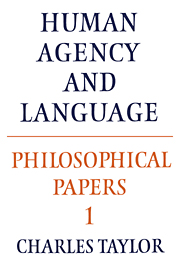3 - Hegel's philosophy of mind
Published online by Cambridge University Press: 05 June 2012
Summary
As with any highly systematic body of thought, Hegel's philosophy of mind can be reconstructed from many perspectives. Each one gives us something, though some are more illuminating than others. But I believe that it is particularly illuminating to see Hegel's philosophy of mind through the perspective of his philosophy of action. This is, of course, hardly a surprising doctrine. Mind (Geist) for Hegel is thoroughgoing activity (Tätigkeit). But I think the insights from this perspective can be enlivened and made more penetrating if we relate Hegel's thought to a set of perennial issues that have been central to the philosophy of action in modern times. This is what I want to attempt in this paper.
At the same time, a study of this kind can be interesting in another way. Understanding Hegel's contribution to the developing modern debate on the nature of action helps us to understand the historical development of this debate. And this, I would like to argue, is important for understanding the debate itself.
We can perhaps identify one fundamental issue which has been left open in the philosophy of action in modern times. To do so, of course, requires some interpretation of the history of modern philosophy, and this as always can be subject to controversy. The precise question which defines this issue was not asked in the seventeenth or eighteenth century, and is rather one which is central to our twentieth-century debate.
- Type
- Chapter
- Information
- Philosophical Papers , pp. 77 - 96Publisher: Cambridge University PressPrint publication year: 1985
- 12
- Cited by

